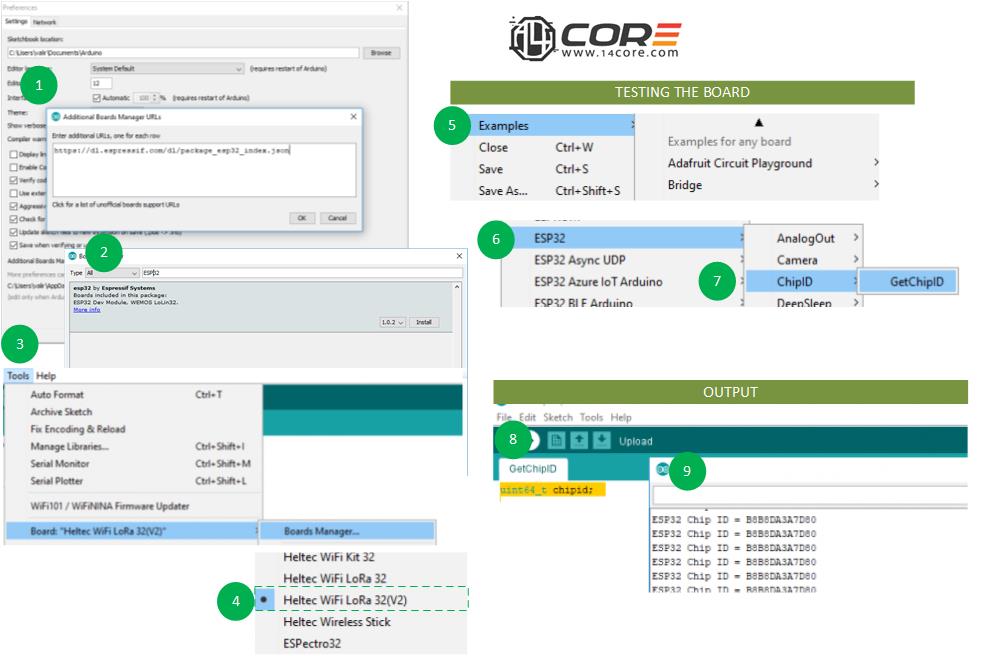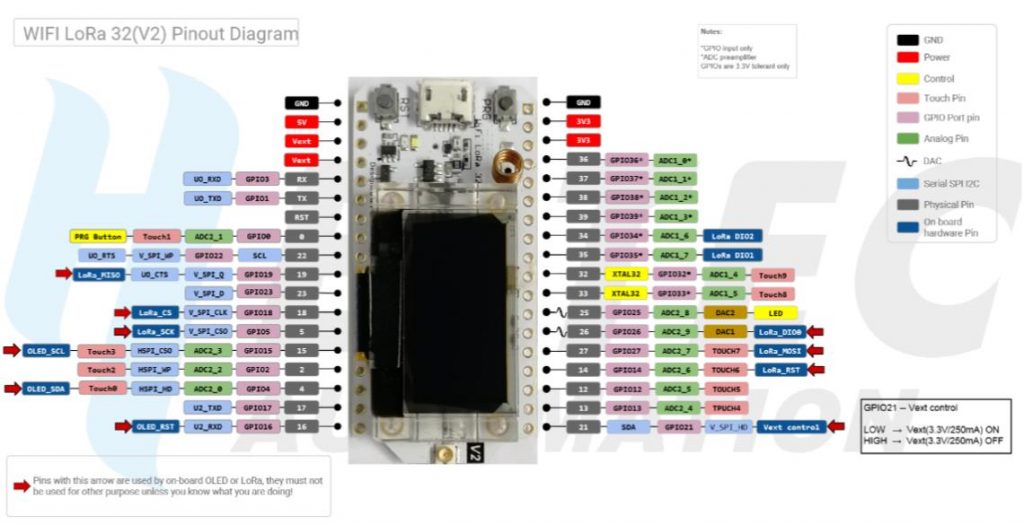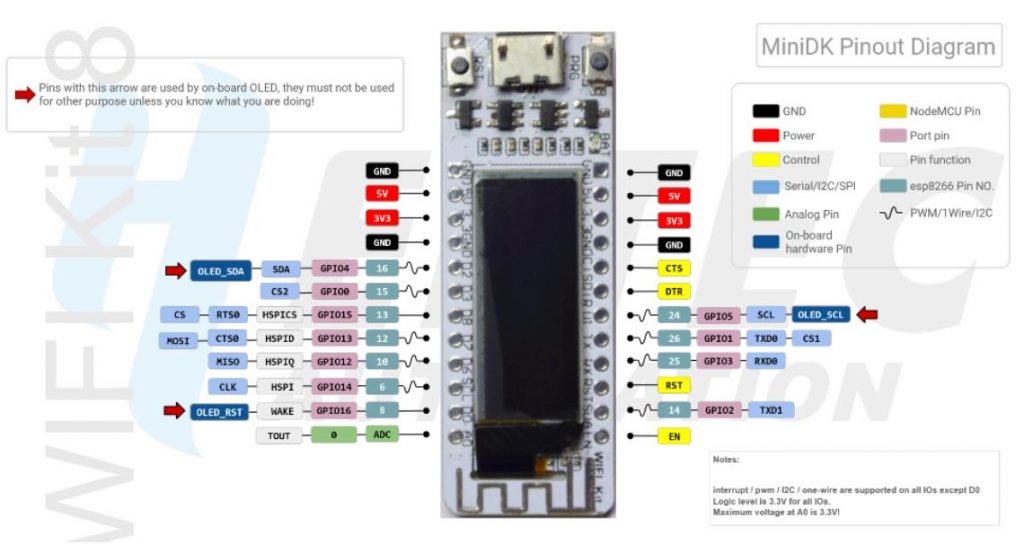HELTEC WIFI 32 module is an ultra-performance that is high ultra-low-power consumption Wi-Fi and Bluetooth wireless platform based on ESPRESSIF ESP32 chipset. ESP-32S dual-core 448 KByte ROM | 520 KByte SRAM | 16 KByte SRAM in RTC | 802.11 b/g/n/e/I Wi-Fi | Bluetooth v4.2 BR | EDR & BLE | clocks & Times |peripheral Interfaces and security mechanism.

ESP-32 Wifi Bluetooth combo module provides SDK Firmware for fast programming that is on-line open source toolchains based on GCC for development support. It is designed for Generic power that is low sensor hub, loggers, video steaming for camera, Wi-Fi & Bluetooth enabled devices, Home automation and mesh network applications, aimed at makers, hardware engineers, software engineers and solution provides. ESP32 is a chip that is a single GHz Wi-Fi and Bluetooth combo chip designed with TSMC ultra-low-power 40 nm technology. It is designed and optimized for the powerful performance that is best, RF performance, robustness, versatility, features, and reliability, for a wide variety of applications, and different power profiles.
HELTEC WIFI 8 is driven by ESP8266 SOC chip, ESP8 module has a preprogrammed firmware which supports the serial interface communication by controlling using AT commands. The ESP8266 chip was developed by ESPRESSIF System, a smart connectivity platform or ESCP that provides high performance, high integration wireless SOCs, the chip designed for space and power-constrained mobile platform. The ESP8266 provides unsurpassed ability to embed Wifi capabilities within another system, or to the application, and minimal space requirement.
Integration
WIFI32 Pinout Diagram
WIFI8 Pinout Diagram
HELTEC WIFI32 / ESP32 Factory Test Code
HELTEC WIFI 32 / ESP32 OLED Test Code
ESP8 WIFI8 / ESP8266 Factory Test Code
ESP8266 OLED Test Code
Downloads / Resource & Libraries
- HELTEC ESP8266 Code Library & Example Codes | https://github.com/HelTecAutomation/Heltec_ESP8266
- HELTEC WIFI 32 / ESP32 & Example Codes | https://github.com/HelTecAutomation/Heltec_ESP32
- Download HELTEC WiFi 32 Pinout Diagram | PDF
- Download HELTEC WiFi 8 Pinout Diagram | PDF
- Download HELTEC Wifi 32 Schematics Diagram | PDF
- Download HELTEC Wifi 8 Schematics Diagram | PDF
- Download Schematics Diagram WIFI LoRa 32 V2 433 | PDF
- Download Schematics Diagram WiFi LoRa 32 V2 868 | PDF
- Download ESP32 AT Command Set Manual | PDF
- Download HELTEC ESP8266 Library | Zip
- Download HELTEC ESP32 Code Library | Zip







